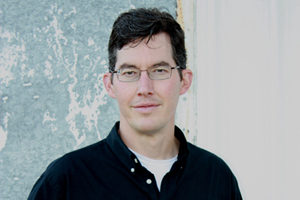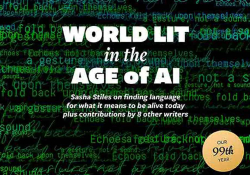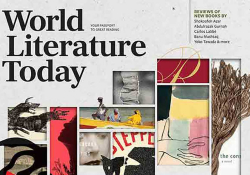Editor’s Note
 When I first met Maaza Mengiste in May 2012 at a French Roast café in Manhattan’s West Village, I was in New York to attend the PEN World Voices Festival of International Literature. I had just gotten into town a couple of hours before, had walked twenty blocks to attend a standing-room-only “lunchtime literary conversation” (sans lunch) at NYU’s La Maison Française, then made my way to the café just a few blocks over. As soon as we introduced ourselves and sat down, Maaza immediately offered to share her tea. In my state of exhaustion—due to a combination of traveling, my hurried walk from Chelsea to NYU, the overheated room at La Maison Française, no lunch, and the gray, drizzly weather—it was a welcome gesture. (It reminded me of the many times my Senegalese friends had prepared tiny little glasses of Gunpowder green tea infused with sugar and brewed to a syrupy potency when we were at university together in the south of France.)
When I first met Maaza Mengiste in May 2012 at a French Roast café in Manhattan’s West Village, I was in New York to attend the PEN World Voices Festival of International Literature. I had just gotten into town a couple of hours before, had walked twenty blocks to attend a standing-room-only “lunchtime literary conversation” (sans lunch) at NYU’s La Maison Française, then made my way to the café just a few blocks over. As soon as we introduced ourselves and sat down, Maaza immediately offered to share her tea. In my state of exhaustion—due to a combination of traveling, my hurried walk from Chelsea to NYU, the overheated room at La Maison Française, no lunch, and the gray, drizzly weather—it was a welcome gesture. (It reminded me of the many times my Senegalese friends had prepared tiny little glasses of Gunpowder green tea infused with sugar and brewed to a syrupy potency when we were at university together in the south of France.)
As we sat there discussing her work and that of other East African writers—including Cristina Ali Farah and Bewketu Seyoum—Maaza also mentioned her involvement with the Girl Rising project, a global action campaign for girls’ education as well as a film that tells the stories of nine girls around the world, including Azmera, a thirteen-year-old from Ethiopia who refused an early marriage and whom Maaza befriended while working on the project. As we finished our tea, I knew that Maaza would be a perfect fit as the visiting writer during our 2013 Puterbaugh Festival of International Literature & Culture, devoted to the synergy of literature and photography.
Fast-forward to April 2013, and I’m sitting in an auditorium listening to Maaza’s keynote talk during the Puterbaugh Festival. The audience includes a few hundred students from the Norman high schools who have all read her debut novel, Beneath the Lion’s Gaze. She is speaking at length about her childhood in Ethiopia, the overthrow of the Haile Selassie government in 1974, her family’s subsequent exile, and her path to authorship in the United States. One of the most striking details is her memory of New Year’s eve in Addis Ababa in December 1974, as the violence around them was increasing: “On New Year’s eve, we would throw little firecrackers. I was out there with the adults at night, and in the Ethiopian tradition, you throw them into the air in celebration. And the gun battles started right then when we were outside, and I remember shaking so badly. I had the firecracker in my hand and it fell on my foot and burned me, and I ran back into the house and told my parents. And that’s when my dad said, ‘That’s it, we have to get out of here.’” Since she was only four years old when they emigrated, it took her years to reconstruct the memories of her early childhood, what she called “putting the pieces together of these photographs I had in my head,” and to eventually write her first novel, which relates the epic tale of a family unraveling in the wake of that 1974 revolution.
Maaza’s comment about photography perfectly embodied the “Image & Word” theme of the Puterbaugh Festival that week. Also headlining the festival was photographer Phil Borges, whose exhibition Stirring the Fire—featuring portraits of women and girls from a dozen countries around the world—opened at the Fred Jones Jr. Museum of Art on April 12. It was one of the most ambitious festivals WLT has ever hosted, and the theme of women’s empowerment throughout the week was reflected in the work of Maaza and Phil, who talked about their inspirations as artists and encouraged students to develop their own visual and verbal engagements with the world.
All who attended the festival were struck by the generosity of spirit embodied not only in Maaza’s words and Phil’s photos but in the vitality of their presence on the University of Oklahoma campus. An abridged version of Maaza’s keynote and an excerpt from her second novel appear as this issue’s cover feature, which begins on page 45. As Chaim Potok once wrote, “Come, let us have some tea and continue to talk about happy things.”









